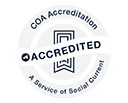Reporting Child Abuse and Neglect
Modernized training, meaningful support
Watch this short video to learn how Illinois is transforming mandated reporting into a system that not only protects children but also supports families.
What are child abuse and neglect?
Child abuse is the mistreatment of a child under the age of 18 by:
- A parent or their romantic partner.
- An immediate relative or someone living in their home.
- A caretaker such as a babysitter or daycare worker.
- Any person responsible for the child’s welfare, such as a health care provider, educator, coach or youth program volunteer.
The mistreatment can either result in injury or put the child at serious risk of injury. Child abuse can be physical (bruises or broken bones), sexual (fondling or incest) or mental (emotional injury or psychological illness).
Neglect is the failure of a parent or caretaker to meet “minimal parenting” standards for providing adequate supervision, food, clothing, medical care, shelter or other basic needs.
Do I have to make a report if I’m unsure abuse occurred?
If you suspect child abuse or neglect you have a social responsibility to report it to Illinois DCFS. State law also requires most professionals who work with children to report suspected child abuse or neglect. These individuals are called mandated reporters and include:
- Healthcare professionals: Physicians, physician assistants, surgeons, EMTs, dentists, chiropractors, nurses, psychologists and home health aides.
- Social service, mental health and crisis intervention providers: Counselors, social workers, therapists, crisis and domestic violence hotline staff and substance abuse treatment personnel.
- Educators: Teachers, administrators, school employees, guidance counselors and school board members.
- Law enforcement and first responders: Police officers, correctional officers, probation officers and animal control officers.
- Childcare providers, residential care staff and foster parents.
- Others: Recreation or athletic program personnel and trainers, funeral home directors and employees, coroners and medical examiners.
Can I be held liable if I make a report and it turns out to be unfounded?
No. As long as your report was made in good faith, the law provides you immunity from liability.
How can I support a family?
Illinois has many community resources to help families with a variety of needs such as food and housing assistance and medical and behavioral health support services. Visit our support resources page for a list of resources you can share with families.
Quick links
- Connect to family support services and resources in your community
- Find support for a child you are concerned about:
- childabuse.illinois.gov
- 1-800-25ABUSE (252-2873)
- Take the new Mandated Reporter Training
- Learn about the Abused and Neglected Child Reporting Act
Additional resources
- Mandated Reporter Manual: English Spanish
- Care Enough to Call brochure: English Spanish Polish Korean Chinese
- Mandated reporter poster:
- Find Support for a Family poster:
- Reporter Decision Tree
- Report or Support poster
Note: Any person who knowingly transmits a false report to the department commits the offense of disorderly conduct under subsection (a)(7) of Section 26-1 of the Criminal Code of 2012. A violation of this subsection is a Class 4 felony." (Source: P.A. 97-189, eff. 7-22-11; 97-1150, eff. 1-25-13.)


 312-814-6800
312-814-6800